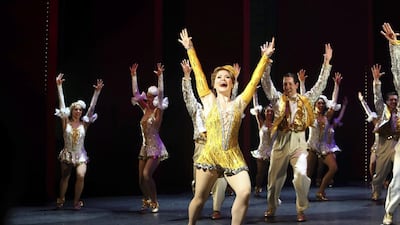According to airline crash investigators, the most dangerous part of any flight is the take-off. And similarly in the acting game, the first day of a new job, when you’re trundling down the cultural runway trying to get airborne, is the most anxious period of the entire contract. Get it right, and you can soar to the heavens. Fail, and you can end up a mess on the tarmac.
I speak from experience, as I’ve just commenced rehearsals for a play here in London. One might think the first day of a new gig to be an exciting and joyous time, but in fact the event is a diplomatic and political minefield and your prospects will stand or fall by how you conduct yourself during the next few hours.
For a start, when should you turn up? The official call may state, “Arrive in time to begin rehearsals at 10am”, but your own appearance must be far more carefully timed. Turn up too soon at the rehearsal room and you’ll be forced to make desultory chit-chat with the director and producer, neither of whom will probably be able to remember your name and who may even assume you’re the caretaker.
But arrive too late and everyone will have already chummed up and be deep in conversation, forcing you to prowl around the room making pretend calls on your mobile phone to look busy.
About 10.15am the director will suggest you all congregate round the table and read the play. The read-through, as it’s called, also requires careful judgment. Should you throw yourself into your part, delivering your lines at performance level, complete with extravagant hand gestures, or hold something back for later?
Experience has taught me that in art as in life, less is usually more. Far better to mumble your lines incoherently into your script with a furrowed brow than declaim to the heavens. Not only will you mark yourself down as a dark and elusive presence, full of hidden emotional depths, but you’ll also force everyone else in the room to crane their neck forward to hear whenever you speak. And attention, as we all know, is the lifeblood of the actor’s life.
Once the read-through is completed it’s time for lunch. But not for you. Instead of decanting to the nearest cafe with your new best friends, now is the time when you can really steal a march by cosying up to the people who really matter – the costume supervisor, the lighting designer and stage manager. These are the real power brokers of any production. Get on their right side and you’ll not only look a million dollars and have your own spotlight, but you’ll be awarded a swanky dressing room.
After lunch it’s time to begin putting the show on its feet. Some directors like to plunge straight in and give you moves and gestures, while others prefer sitting for hours poring over the text and playing complicated trust games. They’ll always encourage everyone in the production to join in and have their say on how the show should be played. But don’t be fooled by their apparent altruism, for however much they may claim they want your opinion, most directors are only really interested in their own. It’s far better to nod furiously at all their suggestions, laugh at all their jokes and keep your mouth shut.
About 5pm your first day will be over. And inevitably, fuelled by relief that you haven’t been sacked, some bright spark in the company will suggest you all decant back to the cafe to continue the bonding over food and drink. This may seem like an excellent notion in the warm afterglow, but be warned. If you’re first to arrive you’ll be landed with the obligation of buying for everybody, an act of generosity that can blow half your precious weekly wage in one fell swoop.
Far better to act cool, murmur something about having to hurry home to prepare for a spurious movie audition the next morning and leave them be. Not only will you retain your air of mystery, you’ll have everybody chatting as soon as you’ve departed.
And as Oscar Wilde said: “There’s only one thing worse than being talked about and that’s not being talked about.”
Michael Simkins is an actor and writer in London
On Twitter: @Michael_Simkins

